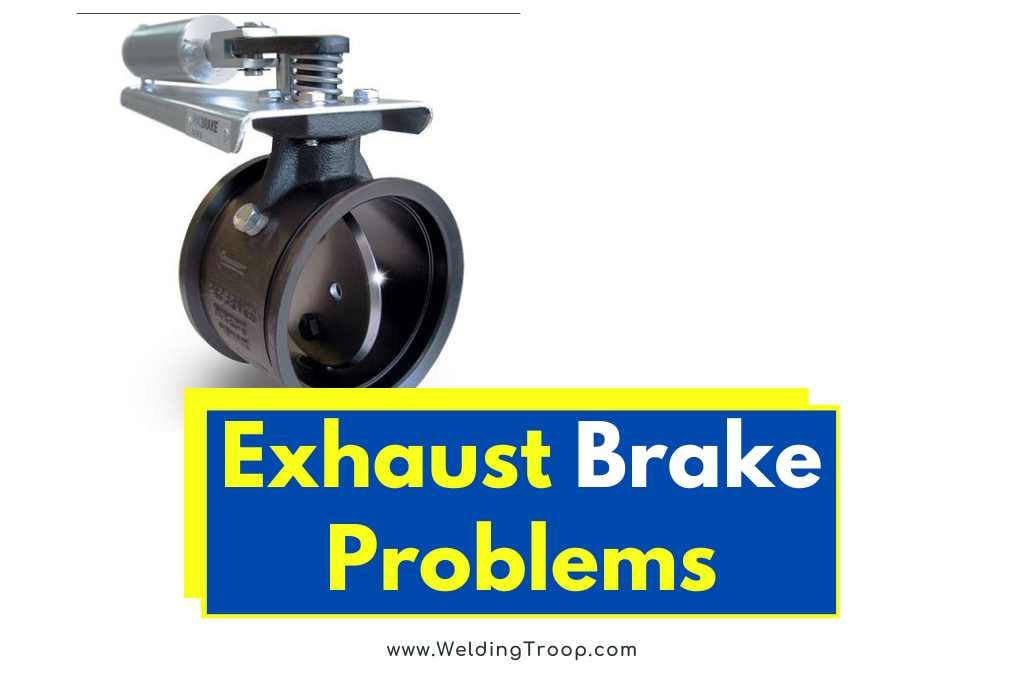Exhaust brakes are an essential component for ensuring a safe and controlled drive, particularly when navigating downhill or on rough terrains. However, concerns arise regarding the potential impact of exhaust brakes on engine performance and longevity.
In this comprehensive guide, we will delve into the topic of exhaust brakes, dispelling any misconceptions and providing you with the necessary insights to make informed decisions about their usage.
Table of Contents
Understanding the Function of Exhaust Brakes
Exhaust brakes serve as a valuable tool for slowing down a vehicle without relying solely on the wheel-mounted braking system.
They work by creating backpressure in the engine, which restricts the flow of exhaust gases and, in turn, reduces the speed of the vehicle.
This mechanism not only enhances safety by preventing excessive speeds downhill but also aids in controlling the vehicle on steep inclines and when conventional brakes fail.
Are Exhaust Brakes Hard on Engines? Debunking the Myth
One common concern is whether exhaust brakes exert excessive strain on engines, potentially leading to premature wear and damage. The truth is that properly functioning exhaust brakes do not pose any significant risks to engines.
While older Dodge truck models before 2006 experienced issues with reverse-thrust bearings due to exhaust brakes, manufacturers have since improved engine designs to accommodate the use of exhaust brakes effectively.
Therefore, if you own a post-2006 Dodge truck, you can confidently utilize exhaust brakes without worrying about adverse effects on your engine.
Differentiating Exhaust Brakes and Engine Brakes
To better understand the impact of exhaust brakes on engines, it is crucial to distinguish between exhaust brakes and engine brakes.
While both mechanisms serve the purpose of slowing down a vehicle, they operate in distinct ways.
Engine Brakes
Engine brakes rely on compressed air to increase pressure within the engine, impeding the movement of pistons and thereby reducing the vehicle’s speed. These brakes offer powerful stopping capabilities, making them particularly useful when traversing steep mountainous terrains.
However, they have some drawbacks. Engine brakes can deplete the supply of compressed air, rendering them ineffective in prolonged use.
Additionally, their loud noise levels have led to restrictions on their usage in residential areas.
Exhaust Brakes
In contrast, exhaust brakes utilize the restriction of exhaust gases to create backpressure and slow down the vehicle. This method is both silent and reliable, making it suitable for use in populated areas.
Unlike engine brakes, exhaust brakes do not rely on compressed air and therefore do not have limitations related to air supply. However, they are generally less powerful than engine brakes.
Addressing Fuel Consumption Concerns
Another aspect to consider when using exhaust brakes is their impact on fuel consumption. While exhaust brakes themselves do not directly consume more fuel, they can lead to a mild decrease in fuel efficiency indirectly.
When the exhaust brake is activated, the exhaust is blocked, causing the glow plugs in diesel engines to cool down. Consequently, less efficient fuel combustion occurs, resulting in a slight decrease in fuel efficiency.
However, it is important to note that the overall impact on fuel consumption is minimal.
Optimizing the Effectiveness of Exhaust Brakes
To maximize the benefits of exhaust brakes, it is essential to employ them in appropriate situations and understand their limitations. Here are some key considerations:
Utilize Exhaust Brakes on Downhill Descents
Exhaust brakes are particularly effective when navigating downhill stretches. By engaging the exhaust brake, you can prevent the vehicle from gaining excessive speed and maintain control throughout the descent.
Control Vehicle Speed on Slopes
When ascending steep slopes, exhaust brakes can assist in controlling the vehicle’s speed. By utilizing the backpressure created by the exhaust brake, you can prevent the vehicle from accelerating uncontrollably on uphill gradients.
Emergency Situations
Exhaust brakes can serve as a valuable backup option when conventional brakes fail in emergency situations. By activating the exhaust brake, you can slow down or stop the vehicle, providing an additional layer of safety.
Performing Regular Maintenance and Inspection
To ensure the optimal performance of your exhaust brake system, it is crucial to conduct regular maintenance and inspections. Here are some key steps to follow:
Check Fuses and Relays
Blown fuses or faulty relays can cause the exhaust brake to malfunction. Inspect the fuse box and ensure that all fuses and relays related to the exhaust brake are in proper working condition.
Inspect Wiring and Connectors
Damaged or disconnected wires can disrupt the functioning of the exhaust brake system. Thoroughly inspect the wiring and connectors associated with the exhaust brake, repairing or replacing any damaged components as necessary.
Examine the ECU Connector
The ECU connector plays a critical role in the performance of the exhaust brake. Inspect the connector for any signs of damage or corrosion, replacing any faulty connectors to ensure proper functionality.
Verify the Continuity System
The continuity system is vital for the effective operation of the exhaust brake. Use a multimeter to check the continuity of the wires and connectors associated with the exhaust brake, ensuring that power is being supplied correctly.
Frequently Asked Questions (FAQs)
Can exhaust brakes cause damage to engines?
No, properly functioning exhaust brakes do not cause any harm to engines. Manufacturers have designed engines to be compatible with exhaust brakes, eliminating concerns about potential damage.
Do exhaust brakes consume more fuel?
While exhaust brakes themselves do not directly consume more fuel, they can lead to a slight decrease in fuel efficiency due to the cooling of glow plugs in diesel engines. However, the overall impact on fuel consumption is minimal.
Can exhaust brakes be used in emergency situations?
Yes, exhaust brakes can be utilized in emergency situations when conventional brakes fail. Activating the exhaust brake can provide an additional means of slowing down or stopping the vehicle.
How should exhaust brakes be maintained?
Regular maintenance and inspections are essential for optimal exhaust brake performance. This includes checking fuses and relays, inspecting wiring and connectors, examining the ECU connector, and verifying the continuity system.
VGT Exhaust brake issues?? Try this first before replacing your turbo! >> Check out the video below:
Conclusion
Exhaust brakes are not hard on engines when used correctly and in vehicles designed to accommodate their usage.
They provide a valuable means of increasing control and safety when driving downhill or on steep inclines. By understanding the differences between exhaust brakes and engine brakes, debunking myths, and optimizing their usage, you can confidently utilize exhaust brakes without concerns about engine damage.
Remember to perform regular maintenance and inspections to ensure the continued effectiveness of your exhaust brake system.

